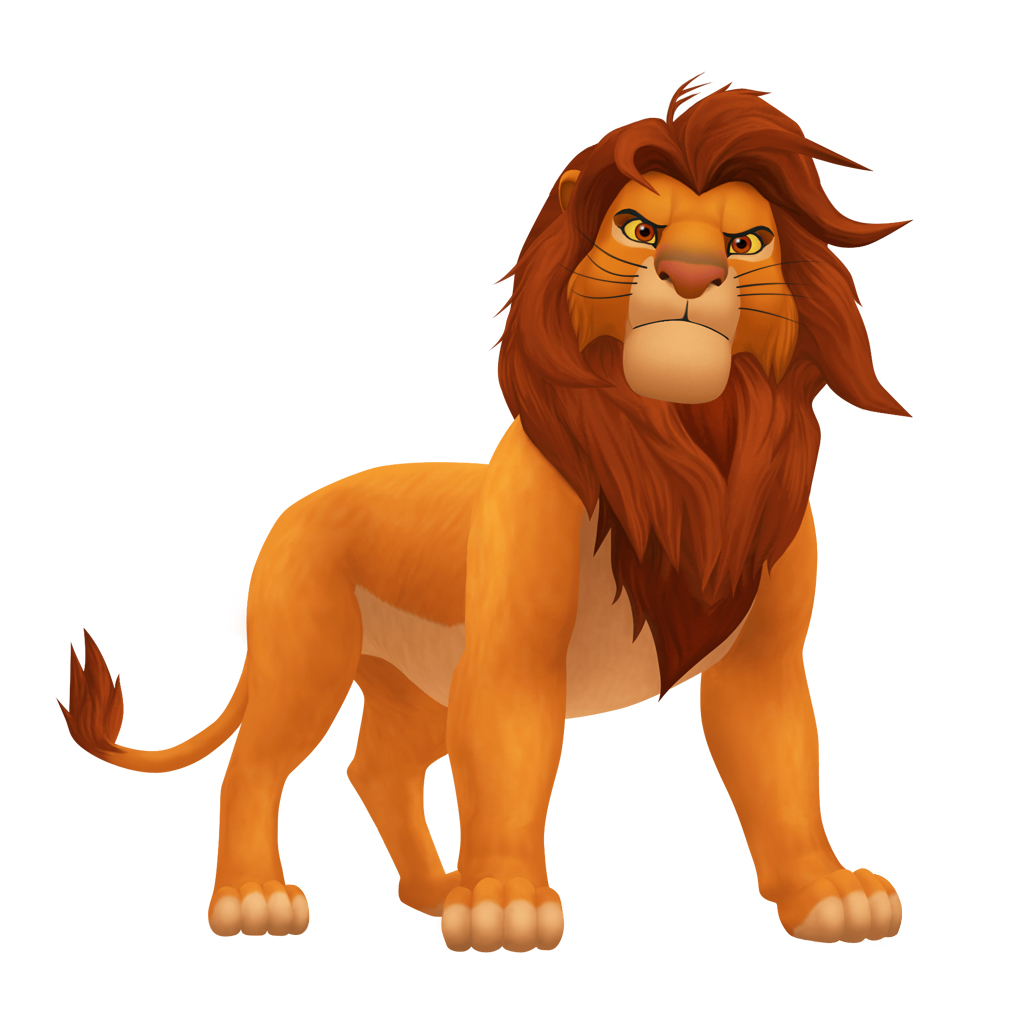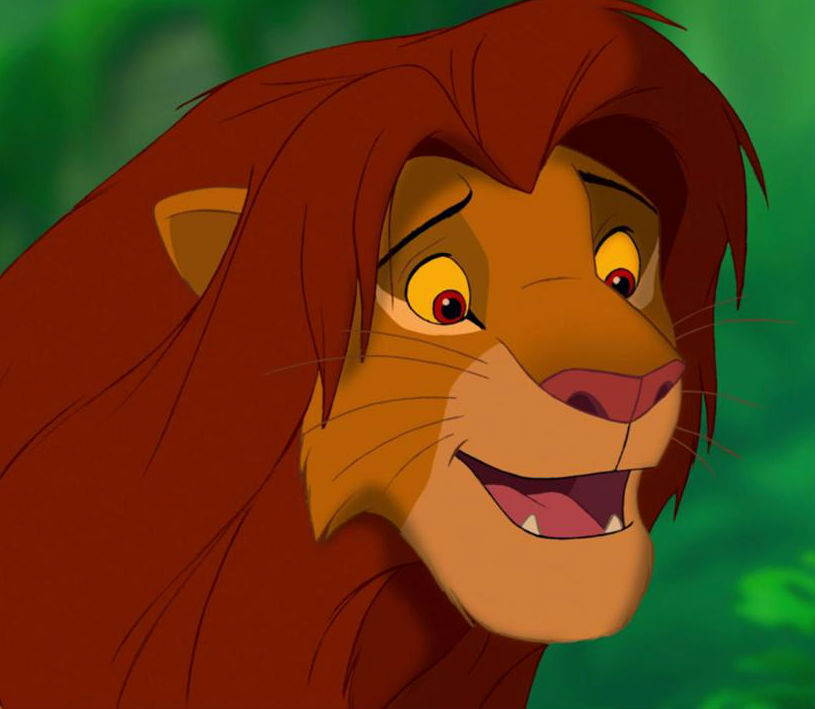What distinguishes the central character of the Disney animated film The Lion King? A young lion, destined for leadership, faces complex challenges on his journey to becoming king.
The protagonist of The Lion King is a young lion cub named Simba. He is depicted as a spirited and sometimes naive character who embodies the struggles and triumphs associated with coming-of-age. Simba's journey encompasses themes of responsibility, self-discovery, and the cyclical nature of life and death, ultimately culminating in his acceptance of his role as king.
The character's significance lies not only in the entertainment value of the film but also in the powerful messages it conveys about leadership, overcoming adversity, and embracing one's destiny. Simba's journey from a carefree cub to a mature leader provides a captivating narrative that resonates with audiences of all ages. The film explores universal themes that make this character and the story enduring. The film's enduring popularity is evident in its cultural impact and enduring influence on popular culture.
| Attribute | Detail |
|---|---|
| Character Name | Simba |
| Film | The Lion King |
| Role | Protagonist, Young Lion |
| Age Range (Target Audience) | Broad, appealing to multiple age groups |
The subsequent analysis delves into the character's key traits, the narrative's underlying themes, and the enduring cultural impact of this influential figure in animation.
Simba, Lion King
Simba, the iconic protagonist of The Lion King, embodies complex themes of leadership, responsibility, and self-discovery. Understanding key facets of his character is crucial to appreciating the narrative's depth and enduring appeal.
- Leadership
- Responsibility
- Self-discovery
- Conflict
- Loss
- Redemption
Simba's journey underscores the interconnectedness of these elements. His initial reluctance to accept responsibility reflects a common struggle with leadership. The conflict arises from internal doubts and external pressures, highlighting the emotional toll of loss and the eventual need for redemption. Simba's self-discovery involves confronting challenges, confronting the past, and ultimately embracing his destiny. The film's universal themes of confronting hardship, accepting accountability, and finding meaning are explored through Simba's compelling arc.
1. Leadership
The concept of leadership is central to Simba's narrative. The film portrays leadership not as a position of power solely, but as a multifaceted process involving responsibility, resilience, and the capacity to inspire others. Simba's journey to assume his rightful place as king underscores the challenges inherent in assuming leadership, not just the privileges. The film's portrayal of a young lion grappling with the complexities of leadership provides a relatable and powerful example for audiences, highlighting the importance of decision-making in a context of uncertainty and loss.
Simba's initial flight from responsibility and subsequent return, motivated by a desire to confront his past and protect his kingdom, demonstrates the internal conflict often associated with effective leadership. His actions, reactions, and choices reflect a developing understanding of the need for strong leadership. This process, mirroring real-life scenarios, illustrates the necessity of facing personal demons, accepting accountability, and ultimately leading by example. The film's focus on these attributes makes the character's journey applicable to various leadership contexts.
In conclusion, Simba's journey highlights the essential components of effective leadership. The film's exploration of conflict, self-discovery, and responsibility within the context of leadership offers valuable insights into the complexities of leadership. This understanding, gained from the fictional narrative, can resonate with individuals in diverse leadership roles, prompting reflection on personal accountability and the enduring importance of making difficult decisions with courage and conviction.
2. Responsibility
The concept of responsibility is central to Simba's character arc in The Lion King. His journey is marked by a progressive understanding of the duties and obligations that come with his destined role as king. This exploration of responsibility extends beyond the fictional realm, offering valuable insights into the nature of personal accountability and the societal impact of leadership.
- Acceptance of Duty
Simba's initial reluctance to accept the responsibility of his lineage underscores the common human tendency to avoid confronting obligations. His avoidance of the throne reflects the internal conflict often associated with taking on significant responsibilities. This avoidance highlights the psychological struggles that accompany the weight of duty. In real life, many individuals face similar challenges in accepting responsibilities, whether personal or professional.
- Accountability for Actions
Throughout the narrative, Simba's actions have consequences, both for himself and for others. The consequences of his choices and the need for him to reconcile those choices form a major part of his narrative. This theme connects with the real-world concept of accountability, emphasizing that actions have repercussions. Individuals who bear responsibility for others must be mindful of the potential impact of their decisions.
- Guardianship and Protection
The weight of responsibility is amplified by Simba's role as protector of the Pride Lands. His actions reflect the importance of stewardship, guardianship, and the responsibility to safeguard one's community. This theme applies universally to leadership roles, highlighting the responsibility to uphold the well-being of those under one's charge or protection. This resonates with the responsibilities involved in leadership positions in various fields.
- Growth Through Challenges
Simba's confrontation with adversity and his eventual return to claim his place demonstrate the profound ways in which responsibilities can shape personal growth. The challenges he faces, including the loss of his father and his uncle's betrayal, strengthen his character and motivate him to accept his role as king. This theme echoes the real-life concept of personal development through hardship. Every individual confronts obstacles that refine their ability to assume responsibility.
Ultimately, Simba's narrative portrays the multifaceted nature of responsibility. It's not merely a matter of title or position, but rather a complex interplay of accepting duty, taking accountability, and continually learning and growing. The film's exploration of these aspects of responsibility transcends its fictional context and provides a framework for understanding the profound implications of responsibility in various aspects of life, from personal to societal.
3. Self-discovery
The journey of self-discovery is a defining element in Simba's narrative. This internal quest for understanding, purpose, and identity shapes his actions, decisions, and ultimate acceptance of responsibility. Exploring this facet illuminates the character's development and the universal themes conveyed in The Lion King. Simba's process, though fictional, offers insight into personal growth.
- Challenging Assumptions
Simba's initial flight from responsibility stems from a lack of self-knowledge. He rejects the weight of his destiny, failing to confront the inherent truth about his lineage. This reflects a common human experienceresisting the perceived burden of destiny, even when it is an integral part of one's identity. Individuals frequently avoid confronting personal truths or accepting limitations, mirroring Simba's initial avoidance.
- Confronting Past Trauma
Simba's confrontation with his past, symbolized by his uncle's betrayal and the death of his father, is pivotal in his self-discovery. This struggle mirrors the necessity for individuals to grapple with past experiences to fully understand their present. Facing personal pain and the actions of others, both past and present, is crucial for resolving emotional conflicts and progressing toward self-understanding. Simba's journey parallels the real-world need to acknowledge past trauma to move forward.
- Embracing Imperfection
Simba's journey isn't a linear progression of perfection; rather, it demonstrates the inherent imperfections within human growth. This is exemplified by his mistakes, his fears, and his capacity for change. His evolution from a naive cub to a responsible king underscores the importance of acknowledging and accepting these imperfections. Acknowledging mistakes and embracing the process of growth are integral parts of the self-discovery process.
- Seeking Guidance and Support
Simba's interactions with other characters, particularly Rafiki, provide essential guidance and support on his path of self-discovery. This aspect reflects the importance of external guidance in navigating challenges and integrating diverse perspectives into a broader self-understanding. In real life, mentors, advisors, and supportive relationships can significantly contribute to the process of personal growth.
In conclusion, Simba's journey through self-discovery, from rejecting responsibility to accepting his place as king, is a powerful metaphor for the complex and often challenging process of understanding oneself. The film demonstrates how confronting one's past, embracing imperfections, and seeking guidance can lead to personal growth, understanding, and ultimately, to the fulfilment of one's potential. This resonates beyond the fictional realm, offering valuable insights into human experience and the power of self-discovery.
4. Conflict
Conflict is a fundamental component of Simba's narrative in The Lion King. It drives the plot, shapes character development, and underscores universal themes of leadership, responsibility, and personal growth. The film's conflicts, both internal and external, are crucial to understanding Simba's journey and its resonance with real-world experiences. Simba's struggles are not isolated; they mirror the conflicts inherent in leadership and personal growth.
Internal conflicts arise from Simba's anxieties about his lineage and the weight of expectation. This internal struggle mirrors the psychological pressures faced by individuals in positions of authority. Simba initially chooses to avoid confronting his responsibilities, highlighting the avoidance of conflict as a common human tendency. External conflicts, such as the rivalry with his uncle, Scar, and the ensuing loss, force Simba to confront his own motivations and the consequences of inaction. These conflicts mirror the struggles of those who face adversity or opposition in the pursuit of their goals. External conflicts can catalyze significant internal change.
The narrative's reliance on conflict illuminates the importance of challenges as catalysts for growth. Simba's journey to acceptance and self-discovery is directly linked to the series of conflicts. Without these struggles, the story would lack depth and the profound lessons about leadership and personal responsibility would be diminished. The conflict's resolution reflects the resilience and determination required to overcome obstacles and achieve personal fulfillment. This parallels the real-world observation that overcoming adversity often leads to significant personal growth and strengthens character. Conflicts, both internal and external, shape individuals and influence their capacity for leadership. The film exemplifies how challenges, even those perceived as negative, can be essential elements in personal development.
5. Loss
Loss plays a critical role in shaping Simba's character arc in The Lion King. The narrative's exploration of loss extends beyond the immediate context of the film, highlighting the universal human experience of grief, its impact on personal development, and the resilience required to confront adversity. The multifaceted nature of loss, experienced by Simba, provides a framework for understanding the profound emotional and psychological consequences of loss.
- Loss of Parental Figure
Simba's loss of Mufasa, his father, is a profound and central event. This loss serves as a catalyst for Simba's journey. Mufasa's death forces Simba to confront the reality of his responsibilities and the potential consequences of his actions. This mirrors real-world experiences where the loss of a mentor or trusted figure can significantly impact an individual's path and choices, demanding a deeper understanding of the value of guidance and support.
- Loss of Innocence
Simba's naivete is shattered by the events surrounding his father's death and the betrayal he witnesses. This loss of innocence is a significant stage of development, forcing Simba to confront the harsh realities of the world and the complexities of leadership. The loss of naivet is a common experience in personal growth, demanding a stronger understanding of the world and oneself.
- Loss of Trust
Simba loses trust in both Mufasa and his uncle, Scar. This loss of trust impacts his ability to form meaningful relationships. The trauma from the betrayal underscores the fragility of trust and the lasting impact it can have. In personal relationships, loss of trust is a significant barrier to growth and the re-establishment of trust can be a lengthy and arduous process.
- Loss as a Catalyst for Growth
The losses experienced by Simba ultimately serve as catalysts for his personal growth. His confrontation with loss prompts him to confront his past, accept his responsibilities, and embark on a journey toward self-discovery. Throughout life, loss often prompts reflection and change, fostering the development of resilience and a deeper understanding of one's potential. This process of reconciliation and personal evolution is crucial to the completion of one's personal journey.
Ultimately, the various facets of loss in The Lion King highlight the profound impact these experiences can have on individuals. Through Simba's journey, the film explores the resilience, personal growth, and transformative power that can emerge from confronting loss. The film's exploration resonates with audiences experiencing similar losses, highlighting the importance of accepting, confronting, and ultimately learning to overcome grief and loss in the pursuit of personal fulfillment.
6. Redemption
Redemption, a central theme in The Lion King, is inextricably linked to Simba's character arc. Simba's journey involves a process of reconciling past actions, accepting responsibility for his choices, and ultimately, reclaiming his rightful place as king. This reclamation, symbolic of redemption, involves a profound internal transformation. The narrative demonstrates how profound consequences of actions, both personal and societal, can lead to the necessity of redemption. This mirrors real-world scenarios where individuals seek to rectify past mistakes and earn a renewed sense of self-worth.
Simba's initial exile, driven by his perceived failure to uphold his responsibilities, exemplifies the potential for personal and societal consequences following actions. This exile serves as a period of reflection and self-assessment. His journey is punctuated by the reconciliation of conflicting emotionsfear, guilt, and longing for his kingdomculminating in a pivotal confrontation with his past. This process mirrors real-life scenarios where individuals grapple with remorse for past actions and seek to rebuild their lives and relationships. The film underscores the importance of confronting the consequences of one's choices, a crucial aspect of redemption. The acceptance of responsibility is a core aspect of the redemption process. His return is not simply about reclaiming power, but about accepting the burden of his duty and the profound impact of his choices on others.
The concept of redemption in The Lion King, therefore, goes beyond a simple narrative resolution. It offers a compelling exploration of personal responsibility and societal consequences. The theme underscores the importance of self-reflection, the need to confront past mistakes, and the possibility of personal transformation. The process of redemption, exemplified by Simba's journey, emphasizes the potential for growth and renewal even amidst significant challenges and setbacks. By understanding this process, individuals can gain insights into their own capacity for personal transformation and the importance of acknowledging past errors to pave the way for a brighter future. This, in turn, can lead to a deeper understanding of moral responsibility and the potential for change, both individually and within a community.
Frequently Asked Questions
This section addresses common inquiries regarding the character of Simba from The Lion King, offering concise and informative answers.
Question 1: What are the primary themes explored through Simba's journey?
Answer 1: The film explores themes of leadership, responsibility, loss, and self-discovery. Simba's struggles to accept his destiny, confront past trauma, and ultimately embrace his role as king serve as the core of the narrative.
Question 2: How does Simba's relationship with Mufasa impact his development?
Answer 2: Mufasa's guidance and mentorship are foundational to Simba's initial understanding of leadership and responsibility. His death acts as a significant catalyst, forcing Simba to confront the weight of his heritage and the complexities of his role.
Question 3: What role does conflict play in Simba's story?
Answer 3: Conflict, both internal and external, drives the narrative. Simba's internal struggles with self-doubt and his external conflict with Scar shape his journey and the film's exploration of the challenges of leadership and personal growth.
Question 4: How does Simba's exile contribute to his character development?
Answer 4: Simba's exile allows for introspection and the development of resilience. This period of separation and reflection is crucial to his eventual return and acceptance of his destined role.
Question 5: What is the significance of Rafiki in Simba's story?
Answer 5: Rafiki serves as a mentor and guide, providing support and wisdom. His presence offers essential perspective and guidance throughout Simba's self-discovery and journey to reclaim his kingdom.
These frequently asked questions highlight key elements of Simba's character and the profound themes explored in The Lion King. The narrative's exploration of leadership, responsibility, and personal growth resonate deeply with audiences.
The next section delves into the specific characteristics of Simba's leadership style and its relevance to various leadership contexts.
Conclusion
The character of Simba, the Lion King, transcends the boundaries of a simple animated film. Through his journey, The Lion King explores profound themes of leadership, responsibility, and personal growth. Simba's evolution, marked by periods of conflict, loss, and self-discovery, offers valuable insights into the challenges and rewards of assuming leadership roles. The narrative's depiction of internal and external struggles highlights the psychological and societal pressures inherent in leadership. Simba's journey, from naive cub to responsible king, emphasizes the necessity of confronting past trauma, accepting responsibility, and embracing one's destiny. The film's enduring popularity stems from its ability to connect with audiences on a universal level, offering potent lessons about leadership, the importance of personal accountability, and the transformative power of resilience in the face of adversity.
Simba's narrative serves as a powerful reminder of the cyclical nature of growth and change. The film's enduring legacy underscores its applicability across diverse contexts, from personal development to the realm of leadership in various fields. The lessons learned from Simba's experience offer a framework for reflection on individual accountability, the capacity for personal transformation, and the pursuit of fulfilling one's potential in the face of adversity. Simba's story resonates with audiences because it underscores the importance of self-reflection, the acceptance of personal responsibility, and the pursuit of leadership with integrity.
You Might Also Like
Percy Jackson Hulu Episodes: Complete Season Count1965 Charlie Brown Christmas: Classic Holiday Special
Codi Bryant: Unveiling The Athlete
Taylor Swift & Travis Kelce Dating Rumors: Is It True?
Best Kevin Smith Clerks: Behind-the-Scenes & More!
Article Recommendations


